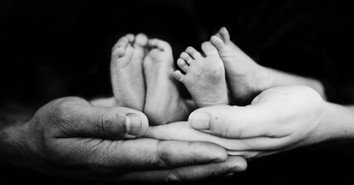10 Questions for Christians Who Support Gay Marriage

It’s been a week already, but the upheaval caused by the U.S. Supreme Court’s ruling on gay marriage has yet to subside. If anything, the intervening days have simply given time for many, many articles to be written, debates to occur, and interviews to happen. You could say the mood is pretty tense.
For most Christians, the week has served as a wake-up call. Our complacency at the sin lurking in our own congregations has led to some much needed introspection, prayer, and Scripture-searching (Psalm 119). To be blunt, we must get our own house in order before we can speak to the cultural and moral decay around us (1 Peter 4:17). We’ve lost our influence because we’ve lost our desire to be holy and set apart (Matthew 5:13; 1 Thessalonians 4:3; 2 Peter 3:11). In particular, if we are to talk about marriage, we must make sure that our own marriages represent Ephesian 5 covenants first. Then, we can address the problems with the world’s view.
But not all Christians have been so shocked or saddened. In fact, many have blithely changed their Facebook profile images to blaze with the colors of the rainbow. They’re glad for the ruling and see no contradiction between the tenants of God’s Word and gay marriage. To those, Pastor Kevin DeYoung at The Gospel Coalition presents a list of searching and important questions:
“If you consider yourself a Bible-believing Christian, a follower of Jesus whose chief aim is to glorify God and enjoy him forever, there are important questions I hope you will consider before picking up your flag and cheering on the sexual revolution. These questions aren’t meant to be snarky or merely rhetorical. They are sincere, if pointed, questions that I hope will cause my brothers and sisters with the new rainbow themed avatars to slow down and think about the flag you’re flying.”
Here are 10 of his most poignant:
1. How long have you believed that gay marriage is something to be celebrated?
2. What Bible verses led you to change your mind
3. How would you make a positive case from Scripture that sexual activity between two persons of the same sex is a blessing to be celebrated?
4. What verses would you use to show that a marriage between two persons of the same sex can adequately depict Christ and the church?
5. Do you think Jesus would have been okay with homosexual behavior between consenting adults in a committed relationship?
6. If so, why did he reassert the Genesis definition of marriage as being one man and one woman?
7. As you think about the long history of the church and the near universal disapproval of same-sex sexual activity, what do you think you understand about the Bible that Augustine, Aquinas, Calvin, and Luther failed to grasp?
8. What arguments would you use to explain to Christians in Africa, Asia, and South America that their understanding of homosexuality is biblically incorrect and your new understanding of homosexuality is not culturally conditioned?
9. Should your brothers and sisters in Christ who disagree with homosexual practice be allowed to exercise their religious beliefs without fear of punishment, retribution, or coercion?
10. Will you speak up for your fellow Christians when their jobs, their accreditation, their reputation, and their freedoms are threatened because of this issue?
For Janet Boynes, however, these questions don’t go far enough. Boynes, a former lesbian, left the homosexual lifestyle when Christ made her new. She doesn’t mince words when she talks about the Bible’s definition of marriage:
“The Supreme Court cannot redefine what they didn't create. Marriage is a covenant, a sacred bond between a man and a woman instituted by and publicly entered into before God. Marriage is intended to be a lifetime commitment since it was established by God.
“Marriage represents a serious vow that should not be entered into lightly or unadvisedly. It involves a solemn promise or pledge, not merely to one's marriage partner, but before God. Marriage is also a human agreement between a man and a woman; it is the most intimate of all human relationships resulting in a ‘one-flesh’ union.”
BibleStudyTools.com recently ran an excerpt from DeYoung’s new book that addresses how the church should respond to same-sex attraction in a way that doesn’t compromise the Bible, but also shows love and grace. He provides 3 important building blocks:
“I imagine a young man coming up to me as his pastor and saying, through tears, “I find myself attracted to men instead of women. I feel so dirty. I’m so ashamed. I feel bad, miserable, and mad at myself and like a failure before God every second of the day.” In this situation I would eventually get to the call of Christian discipleship to live in purity of thought and deed, but that’s not where I would start because this man already feels impure. I’d tell him that feeling this does not make him a failure, and that the desire to walk in holiness is evidence of the Spirit’s work in his life. I’d tell him about the good news of the gospel. I’d tell him that I’m not the way I’m supposed to be either. I’d tell him that Jesus is a sympathetic high priest, that he intercedes for us, that he knows what it’s like to be tempted and tried. I’d tell him that God gives us limps and thorns for our good and for our glory. I’d tell him that God can use our struggles to bless us and to bless others through us.”
Your turn. What questions would you ask Christians who claim to support same-sex marriage? If you do, how would you address DeYoung’s questions?
John UpChurch is the senior editor of BibleStudyTools.com and Jesus.org. You’ll usually find him downing coffee at his standing desk (like a boss).
Originally published July 03, 2015.





